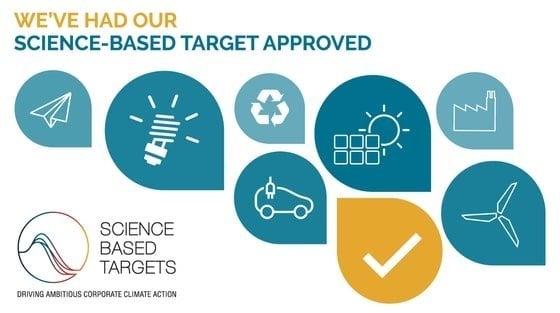railway-international.com
07
'21
Written on Modified on
Alstom’s emissions reduction targets approved by Science Based Targets initiative
Alstom has had its emissions reduction targets approved by the Science Based Targets initiative (SBTi) as consistent with levels required to meet the goals of the Paris Agreement.

The targets covering greenhouse gas emissions from Alstom’s operations (so-called scopes 1 and 2) are consistent with reductions required to keep warming to 1.5°C, the most ambitious goal of the Paris Agreement. Alstom’s target for the emissions from its value chain (scope 3) meet the SBTi’s criteria for ambitious value chain goals, meaning they are in line with current best practice.
The Science Based Targets initiative is a collaboration between CDP, the United Nations Global Compact, World Resources Institute (WRI) and the World-Wide Fund for Nature (WWF). The SBTi defines and promotes best practice in science-based target setting and independently assesses companies’ targets. Science-based targets are emissions reduction targets in line with what the latest climate science says is needed to meet the goals of the Paris Agreement - to limit global warming to well-below 2°C above preindustrial levels and pursue efforts to limit warming to 1.5°C.
“As a world-leader in mobility solutions, energy transition and decarbonisation in transport is at the heart of everything we do at Alstom. This external validation of our targets demonstrates our strong and sustained commitment when it comes to energy and climate long-term challenges,” said Cecile Texier, Alstom Vice President of Sustainability & CSR.
Alstom commits to reduce absolute scope 1 and 2 GHG emissions by 25% by 2025 from a 2019 base year. Alstom commits to reduce scope 3 GHG emissions from the use of sold products from rolling stock by 35% per passenger-km by 2030 from a 2019 base year.
These targets are derived from Alstom’s strategy Alstom in Motion, which sets ambitious environmental objectives for 2025, including a 25 % reduction in the energy consumption of solutions (vs. 2014), supplying 100% of the company’s electricity consumption from renewable sources, and for 100 % of newly developed solutions to be eco-designed.
Galvanized by the historic Paris Agreement, the transition to a zero-carbon economy is underway and accelerating globally. Hundreds of corporations worldwide are preparing for the transition by setting emissions reduction targets grounded in climate science. The latest science has made it clear that more needs to be done - and faster - in order to avoid the worst impacts of climate change and secure a thriving, sustainable economy. The next few years are critical, and companies have a vital role to play in helping achieve transformation at the pace and scale that is needed.
www.alstom.com

